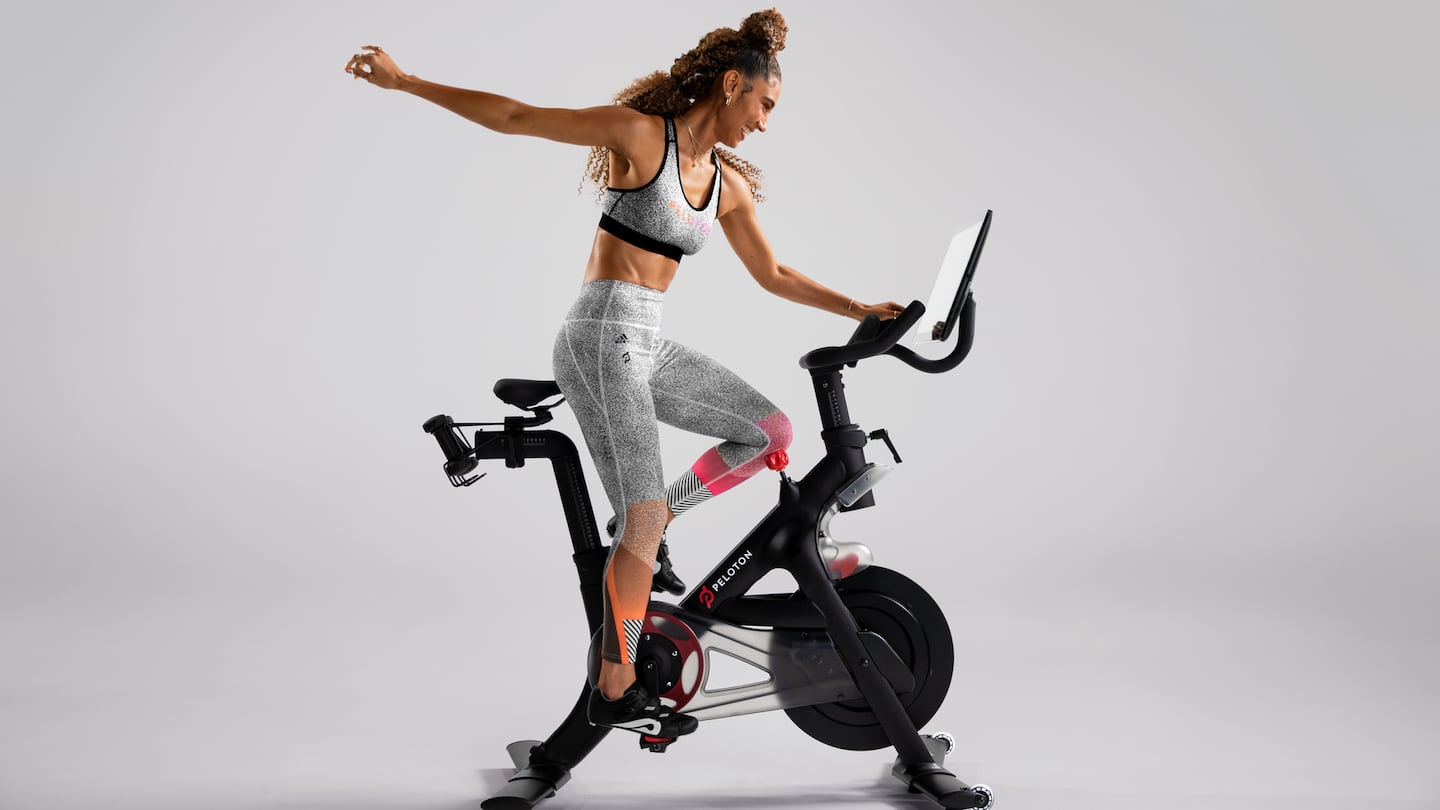
The Business of Fashion
Agenda-setting intelligence, analysis and advice for the global fashion community.

Agenda-setting intelligence, analysis and advice for the global fashion community.

Apparel sales for the at-home fitness company jumped to over $100 million in 2021, according to CNBC, but Peloton is now expecting its fitness apparel sales to slow.
As demand for at-home fitness has waned after increasing during the pandemic, Peloton reportedly halted the production of its stationary bikes. The company had forecasted apparel sales would hit $200 million in annual sales in 2022, but now believes the company will earn about $150 million. Peloton did not respond to BoF’s request for comment.
Peleton amassed a huge following for its bikes and treadmills, and members of its digital community have also snapped up the company’s fitness apparel. Peloton has its own private label but also makes branded collaborations with companies like Lululemon, Nike and Adidas.
The athleisure category saw significant growth during the pandemic — Lululemon already surpassed its 2023 goals and Athleta’s performance is helping drive growth at Gap Inc. But executives believe Peloton owners will ease up on their fitness apparel purchases, as they allocate spending towards going-out clothes. Analysts who are sceptical of Peloton’s staying power say the company can’t compete long-term in the activewear market.
ADVERTISEMENT
“I think a lot of people are buying Lululemon with an added Peloton stamp because they know it’s a great product,” BMO Capital Markets analyst Simeon Siegel told BoF in April. “[Peloton] has yet to show its own staying power.”
Learn more:
How Peloton Got Its Riders Hooked on Its Apparel
Peloton’s success in fitness has Nike, Lululemon and Adidas lining up to make clothes for its loyal riders. Will those followers be as loyal to the exercise bike maker’s own gear?
Peloton’s success in fitness has Nike, Lululemon and Adidas lining up to make clothes for its loyal riders. Will those followers be as loyal to the exercise bike maker’s own gear?
The British musician will collaborate with the Swiss brand on a collection of training apparel, and will serve as the face of their first collection to be released in August.
Designer brands including Gucci and Anya Hindmarch have been left millions of pounds out of pocket and some customers will not get refunds after the online fashion site collapsed owing more than £210m last month.
Antitrust enforcers said Tapestry’s acquisition of Capri would raise prices on handbags and accessories in the affordable luxury sector, harming consumers.
As a push to maximise sales of its popular Samba model starts to weigh on its desirability, the German sportswear giant is betting on other retro sneaker styles to tap surging demand for the 1980s ‘Terrace’ look. But fashion cycles come and go, cautions Andrea Felsted.